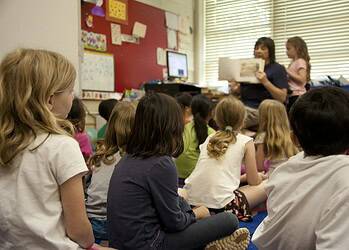Some kids seem to enjoy school activities more than others, but while efforts seem to be concentrated on improving teaching, a new research suggests that genes play a major role as well – sometimes they’re more important than the environment, as far as motivation and doing well in school are concerned. The findings were reported by a team led Yulia Kovas of Goldsmiths, University of London that aggregated a swath of studies which included 13,000 twins aged nine to 16 from six countries, including the UK, Canada, Japan, Germany, Russia and the US.

“Twin studies” are good for differentiating between the given (genes) and obtainable (environment), since identical twins have 100% identical DNA. Any difference between the two genetically identical siblings thus arises from nongenetic factors like their home or school environment. Nonidentical twins, on the other hand, share just as much DNA as any siblings, yet they’re often included in studies to further analyze the roles played by genetic and environmental influences. These kids had to fill out various questionnaires that primarily gauged two things: how motivated they were in the classroom, and how much academic ability they thought they had. The researchers concluded that “genetic factors explained approximately 40% of the variance and all of the observed twins’ similarity in academic motivation.”
So, in some respects the findings topple conventional wisdom, but other people might chant what they already knew all along: all kids are not the same. When a kid goes to school for the first time, he’s not a blank slate, a tabula rasa. While all the kids in a classroom might start off from the same line (not knowing how to read, how to do algebra etc.), they’re evolution is individually different. Of course – that’s just common sense. The findings, however, suggest that cognitive ability isn’t the only thing that’s inheritable and plays a major role in how well a child might do in school.
‘We had pretty consistent findings across these different countries with their different educational systems and different cultures,’ said Professor Stephen Petrill, of Ohio State University.
‘It was surprising. The knee-jerk reaction is to say someone is not properly motivating the student, or the child himself is responsible.
‘We found that there are personality differences that people inherit that have a major impact on motivation.
‘That doesn’t mean we don’t try to encourage and inspire students, but we have to deal with the reality of why they are different.’
In other words, the best education is one that is individually catered. Yes, that’s expensive and prohibitive, but here’s looking at you, mom and dad. Who knows your kid better than you? Don’t expect school alone to educate your child.
Study abstract
Considering the striking consistency of these results across different aspects of academic motivation, different subjects, different ages, and different cultures, we believe that it is time to move away from solely environmental explanations, such as “good” or “bad” home, teacher, and school, for differences in enjoyment and self-perceived ability (Olson et al., 2014). The results convincingly show that, contrary to common belief, enjoyment of learning and children’s perceptions of their competence are no less heritable than cognitive ability (Greven et al., 2009). Surprisingly, unlike cognitive ability, for which shared environment makes a small to moderate contribution across the school years (Petrill et al., 2004), no such contribution was found for these motivational constructs.






